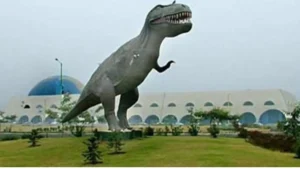UAE wins Presidency of World Meteorological Organization
A meteorologist of United Arab Emirates (UAE) Dr Abdulla Al Mandous has been elected as the new President of the World Meteorological Organization (WMO) for a four-year term from 2023 to 2027. The WMO is an authoritative body within the UN system that focuses on weather, climate, hydrological, and related environmental fields. He will succeed Prof Gerhard Adrian from the German Meteorological Service, who served as WMO President since June 2019.
Dr. Abdulla Al Mandous emerged as the official candidate of the UAE and secured 95 votes out of the representatives from WMO’s 193 member states and territories. The election took place during the 19th session of the World Meteorological Congress (Cg-19) held in Geneva, Switzerland from 22nd May to 2nd June. Under Dr. Al Mandous’ leadership, WMO’s upcoming 77th Executive Council Session (EC-77) will be chaired by the UAE in Geneva from 5th to 6th June.
As President, Dr. Al Mandous aims to enhance the resilience of nations to weather and climate-related hazards, promote knowledge-sharing and capacity building, and strengthen service delivery. He will also prioritize the development of comprehensive early warning systems and scientific research to address the challenges posed by a changing climate.
Buy Prime Test Series for all Banking, SSC, Insurance & other exams
About the World Meteorological Organization (WMO)
The World Meteorological Organization (WMO) is a specialized agency of the United Nations responsible for promoting international cooperation on atmospheric science, climatology, hydrology and geophysics. The WMO is made up of 193 countries and territories, and facilitates the “free and unrestricted” exchange of data, information, and research between the respective meteorological and hydrological institutions of its members. It also collaborates with nongovernmental partners and other international organizations on matters related to environmental protection, climate change, resource management, and socioeconomic development. Headquartered in Geneva, Switzerland, the WMO is governed by the World Meteorological Congress, composed of member states, which meets every four years to set policies and priorities.
The WMO has a number of important programs and initiatives, including:
- The World Weather Watch (WWW), which provides a global network of observation stations and data collection systems that are used to monitor and predict weather and climate conditions.
- The Global Atmosphere Watch (GAW), which monitors the chemical composition of the atmosphere and its changes over time.
- The Hydrology and Water Resources Programme (HWRP), which provides support for the development and management of water resources.
- The Climate Prediction and Applications Programme (CPAP), which helps countries to adapt to climate change and to mitigate its effects.
Important takeaways for all competitive exams:
- World Meteorological Organization Headquarters: Geneva, Switzerland;
- World Meteorological Organization Founded: 23 March 1950;
- World Meteorological Organization Parent organization: United Nations;
- World Meteorological Organization Secretary general: Petteri Taalas.
You may also read this:




 Which City is known as the Science City ...
Which City is known as the Science City ...
 Which District of Punjab is known as the...
Which District of Punjab is known as the...
 Open-Source & Made for India: VoicER...
Open-Source & Made for India: VoicER...








